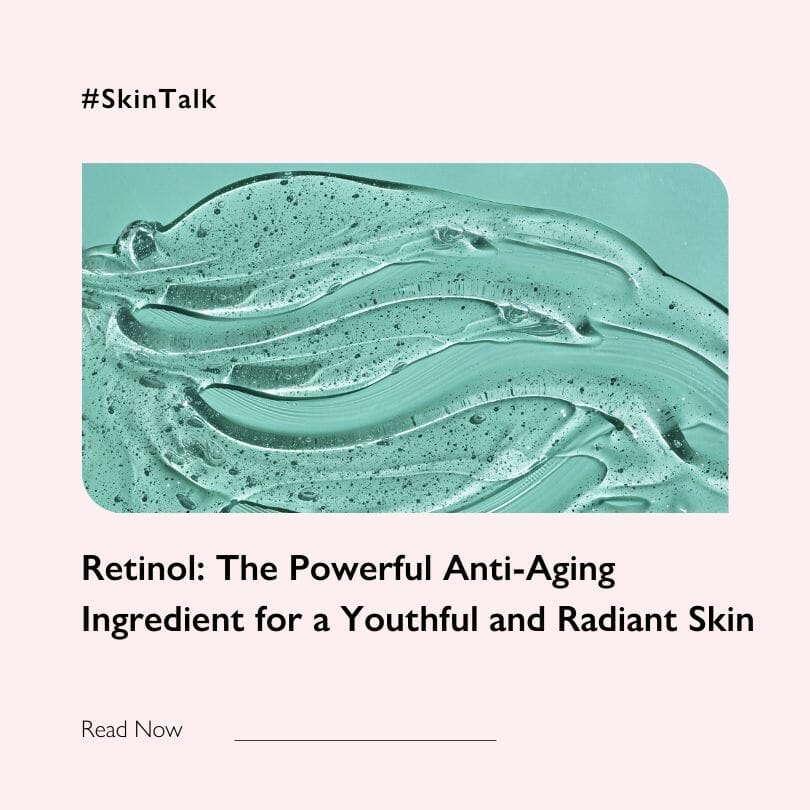Retinol is a type of Vitamin A derivative that is widely used in skincare products. It is a powerful anti-aging ingredient that can help reduce the appearance of fine lines, wrinkles, and uneven skin tone. In this blog, we will discuss everything you need to know about retinol and how to incorporate it into your skincare routine.
What is Retinol?
Retinol is a derivative of Vitamin A, a fat-soluble vitamin that is essential for healthy skin, eyes, and immune system. Retinol is a type of retinoid, a group of compounds that includes retinoic acid (also known as tretinoin) and other Vitamin A derivatives. Retinol is less potent than retinoic acid, but it is still a very effective ingredient for improving the appearance of skin.
Benefits of Retinol
Retinol has many benefits for the skin, including:
-
Reducing the appearance of fine lines and wrinkles: Retinol can help stimulate collagen production, which can help reduce the appearance of fine lines and wrinkles.
-
Improving skin texture and tone: Retinol can help improve skin texture and tone by increasing cell turnover and exfoliating dead skin cells.
-
Brightening the skin: Retinol can help reduce the appearance of dark spots and hyperpigmentation, giving the skin a brighter, more even tone.
-
Unclogging pores: Retinol can help unclog pores and prevent acne by reducing oil production and exfoliating dead skin cells.
How to Incorporate Retinol into Your Skincare Routine
Retinol can be a powerful ingredient, but it can also be irritating to the skin, especially if you have sensitive skin. Here are some tips for incorporating retinol into your skincare routine:
-
Start slow: Start by using retinol once or twice a week, and gradually increase the frequency as your skin becomes more accustomed to it.
-
Use a low concentration: Start with a low concentration of retinol (around 0.5%) and gradually work your way up to a higher concentration if needed.
-
Apply at night: Retinol can make your skin more sensitive to sunlight, so it's best to apply it at night.
-
Use sunscreen during the day: Since retinol can make your skin more sensitive to sunlight, it's important to use a sunscreen with at least SPF 30 during the day.
-
Moisturize: Retinol can be drying to the skin, so it's important to moisturize regularly to keep your skin hydrated.
-
Avoid using with other active ingredients: Retinol can be irritating when used with other active ingredients, such as alpha-hydroxy acids (AHAs) and beta-hydroxy acids (BHAs). It's best to avoid using these ingredients together, or to use them on alternate nights.
Retinol is a powerful anti-aging ingredient that can help improve the appearance of fine lines, wrinkles, and uneven skin tone. However, it can also be irritating to the skin, especially if you have sensitive skin. If you want to incorporate retinol into your skincare routine, start slow, use a low concentration, apply at night, use sunscreen during the day, moisturize regularly, and avoid using with other active ingredients. With these tips, you can enjoy the benefits of retinol without irritating your skin.



